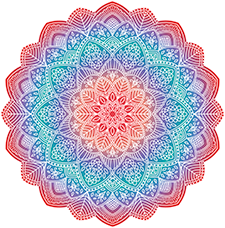Naturopathy and Mental Health
San Jose Counseling and Psychotherapy
 In my therapy sessions, I frequently provide recommendations for natural remedies as an adjunct to our work together.
In my therapy sessions, I frequently provide recommendations for natural remedies as an adjunct to our work together.
There have been a number of alternative medicine treatments that have been found useful for mental health in studies, all of which are used in naturopathy.
I have a holistic approach to psychotherapy that I have developed from the knowledge I gained while studying for a Bachelors in Communication, a Masters and Ph.D. in Psychology, and Doctorate in Naturopathy (natural medicine). I blend my education, other trainings, and experience in order to provide a truly integrated approach to mental health.
Alternative Therapies for Mental Health
Psychotherapists who use natural medicine therapies are mental health care providers who treat the whole person, calling on science and a person’s innate qualities to stimulate healing. This philosophy is the belief in and support of the psyche’s capacity to restore itself to a state of health from the effects of trauma, abuse, and cumulative stress.
The therapist’s role is to guide the patient’s restoration process by increasing awareness and consciousness regarding the identification and use of his own inherent resources.
The therapy itself draws on the therapist’s and patient’s relationship with nature as the primary context in which core transformation and healing occurs. Core transformation refers to the process of awakening to a greater understanding of oneself and one’s environment.
Psychotherapy that uses natural medicine therapies is based on the premise of educating the patient on how to be responsible for their own health care. For example, I educate my clients about self care and make recommendations with regards to treatment options, both allopathic and complementary.
How I Use Natural Medicine With Psychotherapy
 Because disorders are often affected by our emotions and state of mind, the goal is to obtain emotional balance. This involves diagnosing and removing the disturbing emotional causes, whether psychological, physiological, or spiritual.
Because disorders are often affected by our emotions and state of mind, the goal is to obtain emotional balance. This involves diagnosing and removing the disturbing emotional causes, whether psychological, physiological, or spiritual.
Just as in any type of psychotherapy, referrals to outside sources, such as medical doctors, are given as needed.
When I used natural medicine therapies with psychotherapy, I don’t regard a person as just having a mind in a body, but as constituting a mind-body-spirit unity. Mental-emotional, physical, and spiritual factors act and react upon each other, producing either health or lack of it; balance or imbalance.
The Principles of Natural Medicine
The Principles of Natural Medicine are based on the six Principles of Naturopathy. The principles are characterized by an overarching theme that addresses the psychological, physiological, and spiritual nature of the person.
First do no harm
Illness is a purposeful process. Symptoms are an expression of a person’s mind, body, and/or spirit attempting to heal itself. The therapist’s treatment must support the healing power of nature and therapy must be congruent with the internal order of the person.
Utilize the healing power of nature
Each person has the inherent ability to establish, maintain, and restore their health. The therapist’s role is to facilitate and augment this process, to act to identify and remove obstacles to health and aid recovery.
Identify and treat the cause
Underlying causes of disease must be treated before a person can recover. Symptoms are expressions of the body’s attempt to heal, and should not be suppressed by treatment. The therapist evaluates underlying causes on all levels, addressing causes rather than symptoms.
Treat the whole person
Health and disease are conditions of the entire person, involving a complex interaction of physical, spiritual, mental, emotional, genetic, environmental, and social factors. The therapist must treat the whole person by taking all of these factors into account.
The best healer is a teacher
A cooperative therapist-patient relationship is, in itself, therapeutic. The therapist’s major role is to educate and encourage the patient to take responsibility for health, and to be a catalyst for healthful change. It is the patient, not the therapist, who ultimately creates or accomplishes healing.
An ounce of prevention is worth a pound of cure
The ultimate goal of therapy is prevention, accomplished through education and promotion of life-habits that create good health. The emphasis is on building health rather than on fighting disease.
How Natural Therapies Work With Psychotherapy
Rather than approaching emotional health from a strictly psychological approach, the therapist seeks to create a synergistic effect by combining various modes of healing. Each method that is used builds upon the others to create a more powerful catalyst for change.
The principle of synergism is the foundation of many ancient healing practices, such as Traditional Chinese Medicine and herbalism. In herbalism, for example, herbs are used in certain combination to achieve a specific synergistic effect. In therapy using natural medicine, combining certain methods often result in a more profound and lasting change than psychotherapy alone.
In addition to combining natural therapies with psychotherapy, I have a good understanding of naturopathic medicine, Because of this, I often refer my clients to naturopaths who specialize in specific areas of treatment, such as treating certain medical conditions or supervised fasting. By doing this, my clients always receive the best possible care.

Counseling and Therapy for the Silicon Valley including San Jose, Los Gatos, Saratoga, Sunnyvale, Campbell, Cupertino, Los Altos, Mountain View, Palo Alto, Morgan Hill, and Santa Clara.





